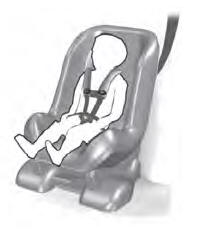Lincoln Aviator 2020-2025 Service Manual / Powertrain / Exhaust System / Exhaust System - 3.0L EcoBoost / Removal and Installation - Exhaust Flexible Pipe
Lincoln Aviator: Exhaust System - 3.0L EcoBoost / Removal and Installation - Exhaust Flexible Pipe
Removal
NOTE: The LH and RH exhaust flexible pipes are covered in this procedure. Remove the exhaust flexible pipe(s) necessary.
NOTE: Removal steps in this procedure may contain installation details.
-
With the vehicle in NEUTRAL, position it on a hoist.
Refer to: Jacking and Lifting (100-02 Jacking and Lifting, Description and Operation).
-
-
Loosen the exhaust clamps.
Torque: 41 lb.ft (55 Nm)
-
Dislodge the resonator inlet pipe from the exhaust hangers.
-
Loosen the exhaust clamps.
.jpg) |
-
Loosen the clamp and remove the RH exhaust flexible pipe.
Torque: 41 lb.ft (55 Nm)
.jpg) |
-
Loosen the clamp and remove the LH exhaust flexible pipe.
Torque: 41 lb.ft (55 Nm)
.jpg) |
Installation
-
To install, reverse the removal procedure.
-
Clean all exhaust connections before reassembly.
-
Check the exhaust system for leaks.
 Removal and Installation - Catalytic Converter RH
Removal and Installation - Catalytic Converter RH
Removal
NOTE:
If the catalytic converter is not being replaced, the HO2S
and the catalyst monitor sensor do not need to be removed from the
catalytic converter...
 Removal and Installation - Muffler and Tailpipe
Removal and Installation - Muffler and Tailpipe
Removal
NOTE:
Muffler and tailpipe assemblies will vary in configuration
with different wheelbases and powertrains. Typical application shown.
NOTE:
Removal steps in this procedure may contain installation details...
Other information:
Lincoln Aviator 2020-2025 Service Manual: Description and Operation - Cruise Control - System Operation and Component Description
System Operation Non-Adaptive Cruise Control Item Description 1 Brake switch assembly 2 IPC 3 Accelerator pedal 4 Deactivator switch 5 Stoplamp switch 6 SCCM 7 PCM 8 Cruise control switches 9 GWM 10 ABS module 11 RCM 12 Steering Effort Control Module (SECM) (adaptive steering) 13 SASM (adaptive steering) 14 SIMA Network Message Chart Network Input Messages - IPC Broadcast Message Originating Module Message Purpose Cruise control override PCM Driver overriding cruise control with accelerator pedal...
Lincoln Aviator 2020-2025 Service Manual: Description and Operation - Active Grille Shutter - Overview
Overview The AGS (Active Grille Shutter) system is primarily used to improve fuel economy by reducing aerodynamic drag while the vehicle in moving. It is also used to shorten engine warm-up time, which increases engine efficiency and provides faster heat delivery to the vehicle cabin...
Categories
- Manuals Home
- Lincoln Aviator Owners Manual
- Lincoln Aviator Service Manual
- USB Port and Power Point Locations
- Description and Operation - Jacking and Lifting
- Body and Paint
- New on site
- Most important about car
Child Seats

Use a child restraint (sometimes called an infant carrier, convertible seat, or toddler seat) for infants, toddlers and children weighing 40 lb (18 kg) or less (generally four-years-old or younger).
Using Lap and Shoulder Belts
WARNING: Do not place a rearward facing child restraint in front of an active airbag. Failure to follow this instruction could result in personal injury or death.
Copyright © 2025 www.liaviator2.com
